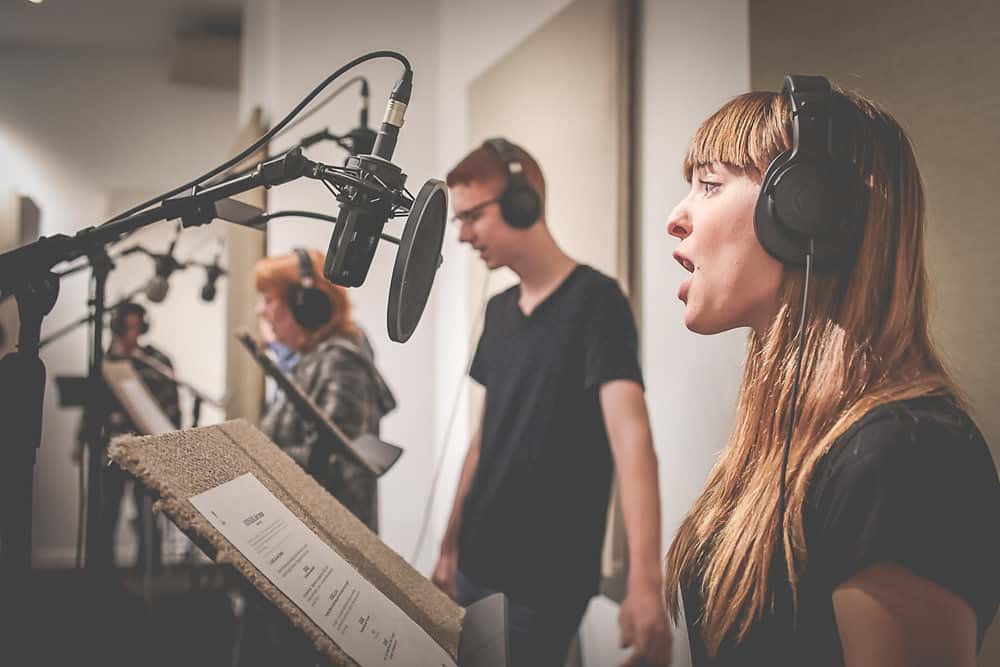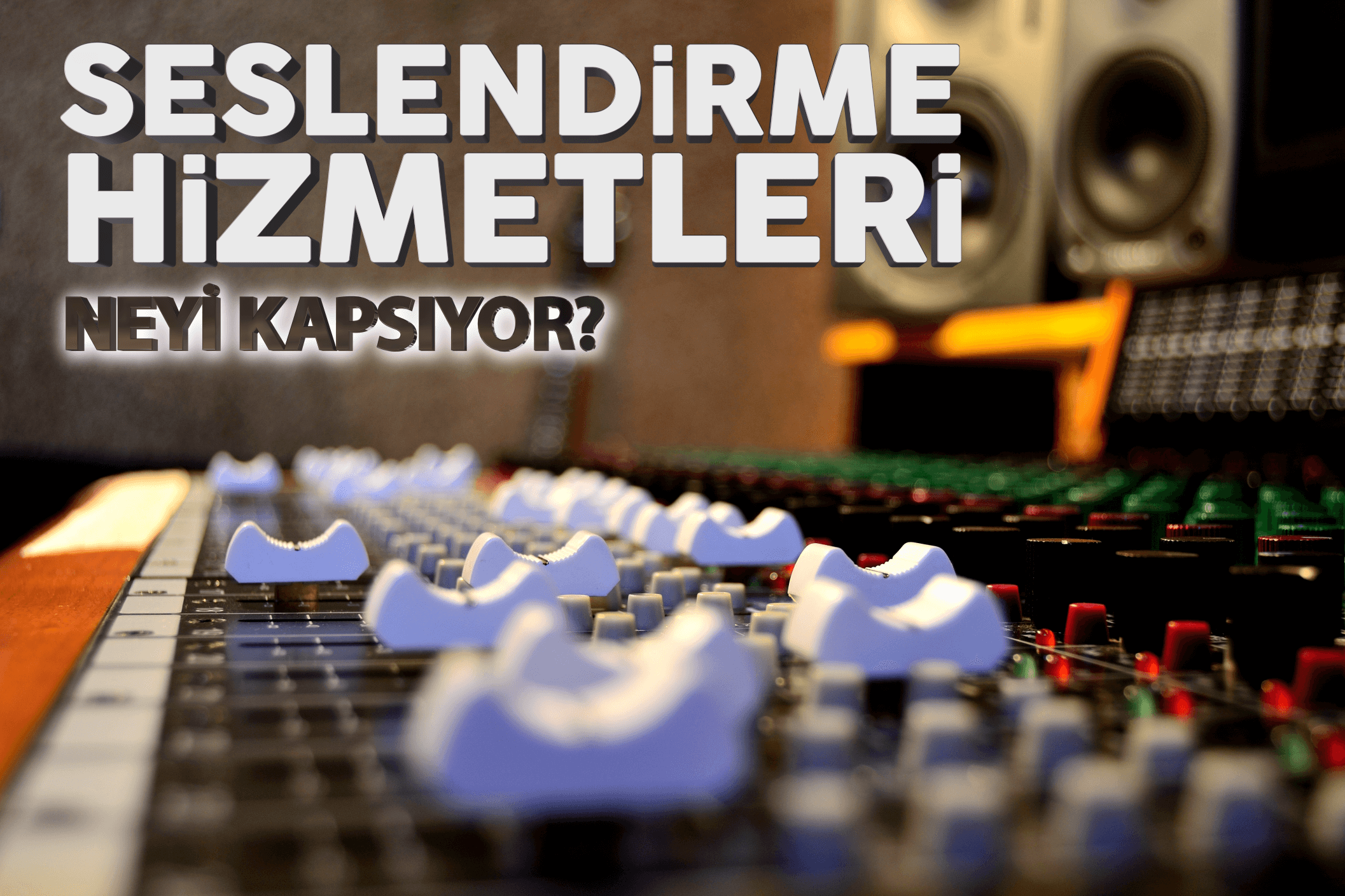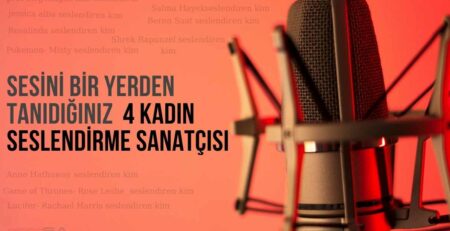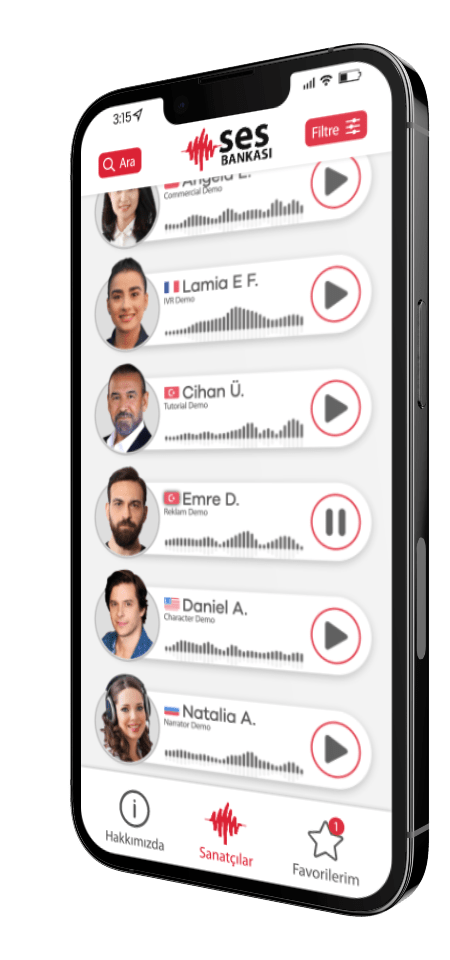How to Become a Voice Over Artist?
A career as a voice actor is possible for creative individuals, namely artists, who love to use their voice. Being a voice actor is a matter of talent. The path to becoming a voice actor depends on how you apply your skills, how you present yourself. It is also important to understand what you can do to improve your voiceover techniques and gain experience in the industry.
In this article, we explain in detail how to become a voice actor and how to become a voice actor.
How to Become a Voice Over Artist?
No formal training is required for voiceover. Unlike stage or film acting, it's rare for those aspiring to become a voice actor to earn a college degree just to learn more about voice acting. Improving your technique, getting to know your voice closely, and getting started, no matter how big or small, are the keys to getting started with voice acting. With this, Many successful voice actors work with both acting and voice coaches to hone their craft.
So, will you find the right coach for you? voice actor Jamie Muffett “The two key qualities to look for in a coach are experience and someone who understands the current and potential state of the voiceover industry” says. Most coaches offer counseling sessions; interviews multiple people and compares their evaluations. muffett, “Don't choose a coach who tells you what you want to hear” says.
The right coach will teach you how to deliver your lines properly, how to express them effectively, how to build character and maintain your vocal health.. They can also guide you through the process of creating a quality demo reel, but be wary of a trainer trying to push their demo reel manufacturing services too early in your training.
Finally, while face-to-face sessions are preferred, it is more important to work with a quality teacher rather than a suitable teacher. Many coaches are willing to work with clients remotely via Zoom or Skype; so don't limit your search geographically, especially if you live outside of major markets like Istanbul or Ankara.
Required Equipment for Voice Over
You will need three main audio equipment: a laptop or tablet, a professional-grade microphone and editing software. These are a voice actor It's an essential part of being.
Unlike other mediums, voice actors can often work from home. Auditing for a role is usually as simple as recording lines provided by the project's casting director and sending them back for consideration. However, this also means that you need some equipment that is very specific to voiceover work:
- Laptop or tablet: This is pretty self-explanatory, but you need a tool to store and organize your audio files.
- Professional quality microphone: Choosing the right microphone is very important. Look for a microphone with USB capabilities. You may also need a microphone stand and a pop-up display.
- Editing software: If you're ready to invest in top-of-the-line software, the all-encompassing Pro Tools for professionals and Adobe Audition are your ideal choices.
- Good acoustics: Don't overlook this last element of a home studio. The cheapest solution may be to record in a closet full of clothes, but you can also invest in soundproofing to create a more professional recording booth.
However, a good voiceover always comes from a voice studio and a work with the voice director. In this respect, it is very difficult for you to work with important brands by doing freelance voiceovers. A good casting director, voice-over director and voice-over studio are places that will improve you.
How Much Does a Voiceover Artist Earn?
Voice actors' salaries vary from person to person, from year to year, from project to project, as well as the use of the recording (local, national, international) and the length of time. Voice actors are usually paid per job. Working with the salary system is generally not possible for voice actors.
The earnings of the voice actor are different from the earnings of the dubbing artist. Also, the voiceover book voiceover, documentary voice-over, advertising voice-over It has different arms. Voice actors can gain expertise in these branches. There is also a difference in earnings between service branches.
There is also a difference in experience between voice-over and dubbing artists. Experienced and master actors can also voice; therefore a stamp fee is paid to work with them. For voice actors who do not have a stamp fee, earnings are calculated per hour or per word.
As in every professional group, it is not possible to talk about a voice-over fee for voice-over and dubbing artists before starting a job. Here, factors such as the quality of the sound, its training, the way the voiceover works have a great impact on the gain.
Is There a School for Dubbing Artists?
You don't have to graduate from a school to be a dubbing artist. You need to have a good talent, a characteristic voice, and a personality that is strong in communication and in love with learning.
There are many courses on dubbing in Turkey, most of them in Istanbul, that provide voice-over and dubbing training. Students who graduate from these courses hope to become a dubbing artist. voice over dubbing apply to their agency. As we mentioned at the beginning, in order to perform dubbing, you must be talented, have a characteristic voice, and be able to make theatrical voiceovers. Apart from this, you should look for the areas where you will use your training with voice-over directors and casting directors.
What is the Difference Between a Dubbing Artist and a Voiceover Artist?
Dubbing artists are the ones whose theatrical skills are more prominent, and voice actors are those who have good command of reading rules such as diction and emphasis. It is important for dubbing artists to enter the role of the character, so dubbing field may be preferred for those who have acting education or are engaged in acting.. As a matter of fact, famous dubbing artists are usually either theater or movie actors.
In dubbing, there is no need for an acting skill like dubbing. You can step into the world of vocalization by paying attention to factors such as a strong volume control, diction and accentuation.
BiberSA Production Voice and Dubbing agency in sound bank The voice-over and dubbing artists featured in Turkey's best voices. Having your demo in such a large sound bank in the voice-over area makes it easier for you to be “discovered”.
Who Are Famous Dubbing Artists?
Dubbing artists, who have given voice to many projects in Turkish cinema and the media sector, especially movies, TV series and advertisements, are timeless, stuck in our ears and we remember this voice when we hear it:
- Nuvit Candaner,
- Ayhan Kahya
- Mazlum Kiper
- Sungun Babacan
- Aydogan Basic
- Ozkan Ugur
- Nur Subasi
- Kadir Ozubek
- Cahit Shaher
- Hope Plate
- Itri Kosar
- Clever Horseman
- Ugur Tasdemir
- Soil Sergen
- Sezai Aydin
- Haluk Bilginer
- Cetin Tekindor
- Selcuk Method
- Engin Altan Duzyatan
- Gunyol Bakoglu
- Ali Poyrazoglu,
- Tarkan Koc
- Müge Oruçkaptan many more dubbing artists…
To listen to demos from these artists and more Your Sound BankYou can visit.























